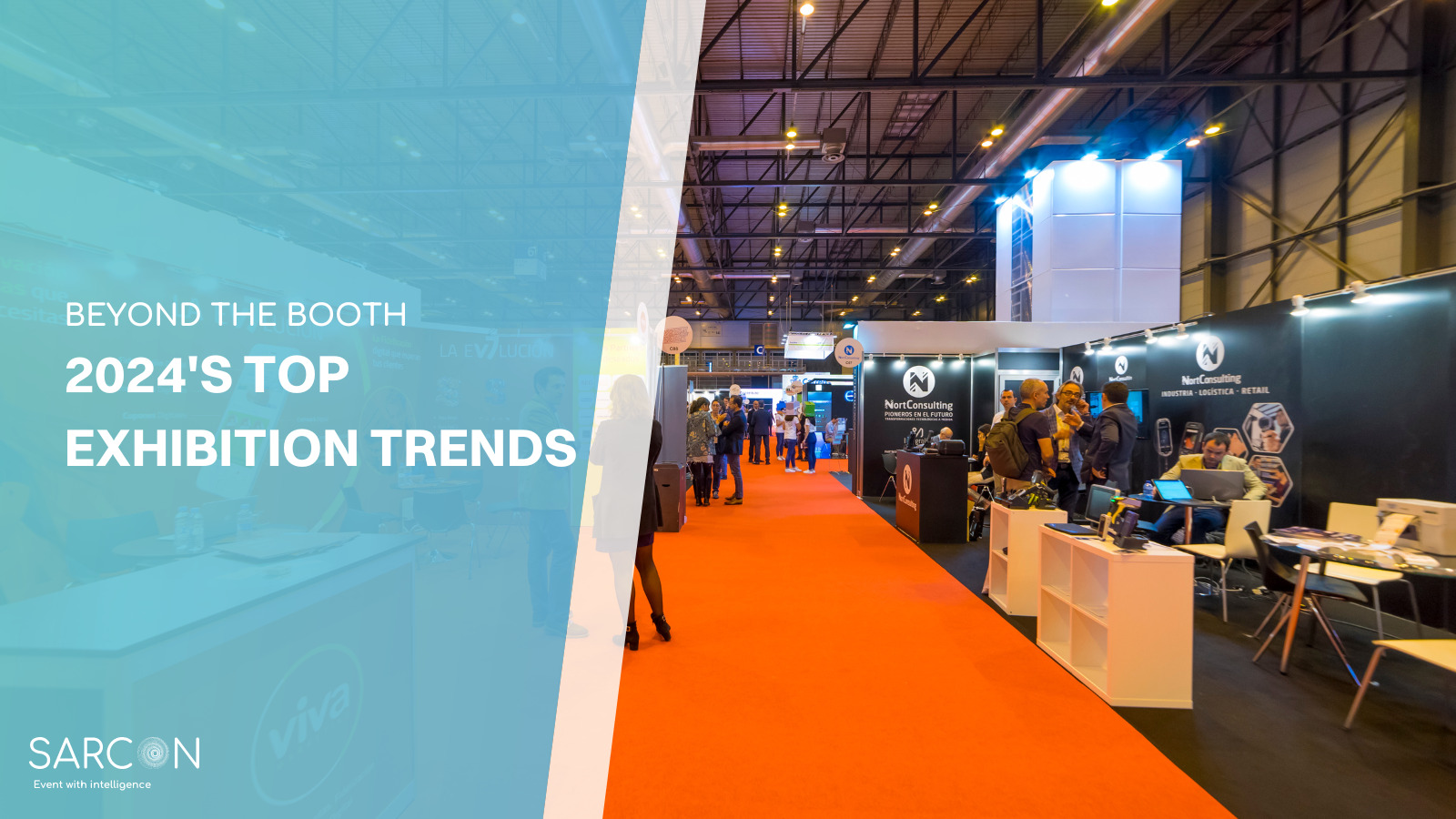In the past, virtual and hybrid events have been seen as a lesser alternative to traditional in-person events. However, that is no longer the case! These types of events are becoming more and more popular, thanks to their many advantages over traditional events. In this blog post, we will discuss the top virtual and hybrid event trends for 2023. Stay tuned – it’s going to be an exciting year for virtual and hybrid events!
Technology will play a larger role in events
2023 is shaping up to be a banner year for event tech. The events industry is evolving rapidly, and event technology is playing an increasingly important role in shaping the future of events. According to a report by Verified Market Research, the events industry market size is expected to increase from its 2020 valuation of $886.99 billion to $2,194.40 billion by 2028, or a CAGR of 13.48%.
As we head into 2023, there are a number of trends that are shaping the virtual and hybrid event landscape. Here are some of the top trends to watch out for:
- Increased use of AI and virtual assistants for event planning
- More hybrid events that combine online and in-person components
- Increased use of AR and VR technology
- Greater use of video conferencing and webinars for remote attendees
- More interactive and engaging event formats
- Continued growth of event apps and platforms
- Increased focus on sustainability and eco-friendly events
- More experiential events
- Reimagining the Ticketing Process
- Events will become more personalised
All of these changes will have a significant impact on the events industry. Event planners will need to become more tech-savvy to keep up with the latest trends and ensure their events can take advantage of new technologies. In short, technology is poised to play a major role in events in the years to come.
Increased use of AI and virtual assistants for event planning
The events industry has been one of the hardest hit by the pandemic, with virtual and hybrid events becoming the new norm. However, the increased use of artificial intelligence (AI) and virtual assistants is helping event planners to adapt and even thrive in this new landscape. Virtual assistants can handle a wide range of tasks, from sending out invitations to managing RSVPs. They can also help with event marketing, social media promotion, and even post-event follow-up.
In addition, AI-powered Event Platforms are making it easier than ever to plan and manage virtual and hybrid events. These platforms provide a central location for all event information, making it easy to send updates and track RSVPs. They also offer features like AI-powered matchmaking, which can enhance the virtual event’s networking.
The increased use of AI and virtual assistants are changing the event planning landscape. With their help, event planners can overcome many challenges posed by virtual and hybrid events. As a result, they are able to provide their clients with unique and memorable experiences that are sure to stand out in a crowded marketplace in 2023.
More hybrid events that combine online and in-person components
Despite the event industry increasingly shifting online people still crave the personal connection that can only be achieved through in-person events and while they are making a comeback, albeit not without some uncertainty.
Hybrid events on the other hand are on the rise, offering the best of both worlds, allowing people to connect with each other online and in person. In 2023 most event organisers should focus on combining online and in person components in their hybrid event. So no matter what type of event you’re planning, there are plenty of ways to make it a hybrid event.
Here are just a few ideas:
- Include a virtual component: invite people to attend your in-person event online, even if they can’t be there in person. The addition of a virtual event component removes constraints to attendance, including geographical distance, travel limits, pandemic restrictions, and the size of the venue. Furthermore, you can bundle your virtual access ticket with information packages to enhance the at-home experience of your guests. This way, everyone can still participate and stay connected.
- Add an in-person element: if your event is primarily virtual, consider adding an optional in-person component for those who are able and willing to attend. This could be as simple as meeting up for feedback after the event.
- Make it interactive: use technology to create interactive experiences that engage both virtual and in-person attendees. For example, you could use a platform like Sarcon to allow people to ask questions and vote on polls during your virtual event.
- Go virtual reality: with virtual reality technology becoming more and more accessible, there’s no reason not to try incorporating it into your hybrid event. This could be as simple as setting up a few VR headsets at your venue for people to try out or making your entire event virtual reality-based.
Hybrid events are the perfect way to engage with people both online and in person. With a little creativity, you can make your hybrid event stand out from the rest.
Increased use of AR and VR technology in event industry
Event planning is complex and often stressful, requiring careful coordination and meticulous attention to detail. Virtual and augmented reality are beginning to revolutionise the event planning industry, providing planners with new and innovative ways to engage with their clients. Augmented reality, in particular, has the potential to transform the way events are executed, allowing planners to create virtual simulations of their event spaces that clients can preview before the event takes place.
This technology can also be used to provide attendees with a more immersive and interactive experience during the event itself. They can transport us to lifelike environments that would otherwise be inaccessible, while augmented reality can superimpose digital information onto our view of the real world. The possibilities are endless, and as virtual and augmented reality become more commonplace, it is likely that they will play an increasingly important role in the event planning industry.
Greater use of video conferencing and webinars for remote attendees
Video conferencing and webinars have become increasingly popular in recent years as they provide a cost-effective and convenient way to connect with remote attendees. However, some drawbacks to virtual events should be considered before making the switch. For example, virtual events can be more difficult to engage with for some attendees, as they can be easily distracted by other internet browsing or work.
Additionally, virtual events can produce lower-quality audio and visuals than in-person events, which can impact the overall experience. Despite these challenges, video conferencing and webinars offer a number of benefits that make them a worthy investment for businesses. They provide greater flexibility in terms of location and timing, which can reduce costs associated with travel and accommodation.
Furthermore, virtual events can reach a larger audience than in-person events, as there are no geographical limitations. Ultimately, whether or not to use video conferencing or webinars for remote attendees is a decision that should be made on a case-by-case basis. As a business, you should consider the objectives of the event, the target audience, and the budget before making a decision.
More interactive and engaging event formats trends
As we move into 2023, we can expect to see a continued trend toward more interactive and engaging event formats. The traditional event format of a keynote speech followed by breakout sessions is no longer the only option for event planners. Virtual events will become more popular as technology advances, and attendees become more comfortable with the format.
Hybrid events, which combine elements of both virtual and in-person events, will also become more common as organisers look for ways to reach a wider audience. We can also expect to see more events that focus on experiential elements, such as immersive theatre and escape rooms. As attendees increasingly seek out opportunities to interact and engage with their surroundings, event organisers will need to continue to be creative in their approach to event design.
The continued growth of event apps and platforms
Virtual events platforms and apps are expected to continue growing in popularity. However, virtual events can also be more challenging to produce and promote effectively. In 2023, event planners will continue to seek out the best virtual event platforms and apps to help them engage their audiences more effectively.
At the same time, hybrid events platforms- which combine virtual and in-person elements – are also expected to adopt more VR and AR features. As event planners become more experienced with virtual event technologies, they will be better able to take advantage of the unique opportunities that hybrid events offer.
Increased focus on sustainability and eco-friendly
As awareness of the importance of sustainability grows, event planners and organisers are increasingly looking for ways to reduce the environmental impact of their events. This has led to a surge in demand for sustainable and eco-friendly products and services. ECO-friendly events will become more common as organisations strive to reduce their carbon footprints.
Events that are able to incorporate green technologies and meet these demands will be well-positioned to capitalise on this trend. In particular, events that can demonstrate a commitment to sustainability will be in high demand. As a result, we can expect to see a significant increase in sustainable and eco-friendly events in 2023.
More experiential events
Attendees are no longer content to sit on the sidelines and watch the action unfold. Instead, they want to be a part of the action. As a result, more and more event planners are incorporating experiential elements into their events. Virtual and hybrid events have become popular options as they allow attendees to feel more connected to the action.
There are a number of advantages to this approach:
- It allows attendees to interact with the event on a personal level.
- It makes the event more memorable and engaging.
- It gives attendees a sense of ownership over the event. Experiential events are no longer a novelty; they are fast becoming the norm.
Reimagining the Ticketing Process
The traditional model of ticketing is evolving. Companies are looking for new ways to make the ticketing process more efficient and convenient for customers. As a result, self-serve kiosks, affiliate programs, and loyalty programs are becoming more common. Additionally, virtual and hybrid events are becoming increasingly popular, which means that ticketing systems will need to be able to accommodate both in-person and online attendees. And, as the use of blockchain technology increases, we are likely to see the increased adoption of NFT tickets.
So whatever the future holds for events, one thing is certain: the ticketing industry will need to continue to adapt and evolve to meet the changing needs of event planners and attendees alike.
Events will become more personalised
In the past, events have been organised around a one-size-fits-all approach. However, this is starting to change. As event planners become more aware of the need to cater to the individual needs of attendees, events are becoming more personalised. For example, rather than offering a standard buffet, organisers are now offering custom meal plans that take into account attendees’ dietary restrictions and food preferences.
Additionally, rather than providing a generic goody bag, organisers are now putting together welcome packages that contain items specifically chosen for each individual attendee. As events become more personalized, attendees will be able to get more out of them. They will feel valued and appreciated and will be more likely to return in the future.
Conclusion
The future of event planning looks bright, and as technology advances, we can expect to see even more impressive and innovative events. We are excited to see what the future holds and look forward to partnering with you to create unforgettable experiences for your attendees. What trend in event planning are you most looking forward to?



